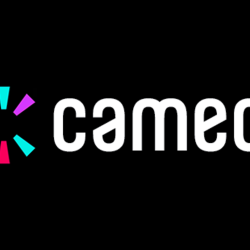Is there anything more “dystopian” to the British than a lack of manners?
And when I talk about manners, I’m not talking about minding your Ps and Qs or eating with the right knife.
I’m talking about following the most fundamental tenet of humanity known as the golden rule — “do unto others as you have them do unto you”. I’m talking about fairness and decency.
It’s a negative consequence of an over supplied industry. I think as budgets get squeezed the temptation seems to be growing to not only ask agencies to do more with less, but some proper bad behaviour (call it bad manners) is creeping in.
Clients who don’t even say thank you. People who only focus on the negative after weeks of hard work. New business prospects who ask people to pitch for free and then don’t bother to get back to you. New business prospects who ask people to pitch for free in the first place. Companies that interview young people and then ghost them.
How do we expect to make our industry an attractive place for talent, young and old, if we treat people like this — especially that last one.
I’ve been chatting to a few leadership peers recently and some shocking stories came up (all the following are anonymised).
- Multiple examples of agencies being asked to pitch extensive ideas for free and then not even getting so much as an acknowledgment email.
- One client asking for ideas, then telling the agency there was no longer a brief, and then running the agency’s ideas anyhow without any credit.
- Multiple examples of clients asking agencies to respond with detailed written proposals/scope and then not having the basic manners to reply “yes” or “no”.
I know from chatting to industry peers and commentators in the last couple of weeks that those examples are not only depressingly common but also on the rise. I want to make a plea for a return to acting decently towards people, especially suppliers.
Actually, in a lot of cases, it is not really about manners at all. It is about basic backbone or courage to be honest with people. The book Eat That Frog! contains some simple advice for anyone who has aspirations of leadership: Approach your difficult tasks first. Leadership in the good times is easy. Anyone can turn up for the celebratory drinks. The real leaders are the ones who can deliver bad news and the ones who face up to the problems.
But I don’t want to just moan or accept that this is just a consequence of the modern imbalance of an over-subscribed category. I want to give some basic simple things I think all leaders — agency or client — should do to act more decently.
Call people
Delivering bad news isn’t easy but grow a pair and do it. Don’t just hide or hope the problem goes away. Being a strong leader is about the ability to deliver bad news with empathy. Tell them they haven’t got the role/brief/business. You owe them that much.
Pull the plaster quickly
Don’t leave people hanging on. When I was a client I did loads of pitches. We always knew exactly which agency had “won” by the end of the day – no exception. Call them all. It’s very least you can do after all the unpaid time and effort they’ve put in.
Be open
I came across a case of a client who had wasted months of agency time getting them to respond to a brief that they clearly hadn’t had the courage to confirm internally. The bad blood created was permanent. Tell the truth. I have come up against so many examples of people telling easily disprovable lies to avoid having a more difficult, honest conversation.
Say thank you
It goes a long way. Seriously. And costs nothing.
Focus on what you “like” first when giving feedback
It really helps. Especially to a bunch of people who may be quite exhausted having put a lot of time and effort and soul into what they’re showing you.
Look in the mirror
Just always ask yourself would you like to be treated this way? If you would be upset, unhappy or angry to be treated that way then why do you think it’s acceptable to act that way towards others?
None of that is hard, is it? No one is asking anyone to change the entire industry. The dictionary definition of manners/etiquette is about what is “acceptable” behaviour. Just act like a nice human being.
Oh and…. pay your interns and pay your invoices (on time). It doesn’t take much really. It shouldn’t feel like asking for Utopia, but sometimes it really does.
Featured image: Alex Kristanas / Unsplash


































